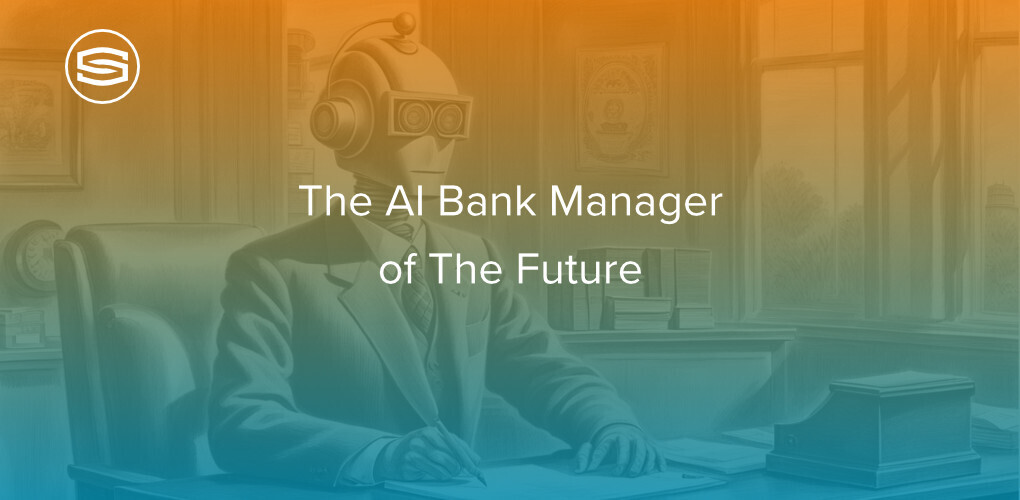
Insights & Opinions
The AI Bank Manager of The Future
Mon, 11 Mar 2024


When I was a growing up, my father always cultivated a deeply personal relationship with his bank manager. Whenever we moved to a different town, he would walk into the local bank branch to discuss “transferring his account” (that’s not even a thing anymore, is it???) to that branch with the manager. He would always make sure to take a “letter of introduction” with him from his previous bank manager, and that would be the foundation of the relationship.
My father would share details about our family, his business, and his personal and professional ambitions for the future. He would let them know the age and stage of each of his children: who was about to attend university in the near future and what their ambitions were after this, and he would discuss his passion for fast cars and when he planned to change and potentially finance his next one. He knew that the more honest and transparent he was, and the more details he shared, the better the bank manager would be able to help and advise him on his financial health.
He would take time to ask questions of the bank manager to find out about their own life, and if they were willing to share, he was quick to offer help and advice of his own where appropriate.
It was a relationship built on mutual trust and respect and I always got the feeling that the respective bank managers had my father’s best interests at heart, even when these might occasionally have been in conflict with their own personal targets and objectives. On more than one occasion, I was interested to hear a bank manager had advised him of better mortgage deals or loan rates available from competitors for example.
It was a different era of banking back then. One that was personal, one where the bank manager (or relationship manager in today’s terms) was viewed as a trusted advisor, someone that could be counted on to act in the interests of the customer – the epitome of customer centricity.
Fast forward to 40 years later and with all our advances in technology, I’m still searching for the equivalent of “my father’s bank manager”.
About a decade or more ago, everyone in financial services was talking about “hyper personalisation”. The idea being that banks are sitting on this mountain of personal data that enables them to know their customers, REALLY know their customers wants, needs and desires and by using analytics, they would be able to better serve their customers' needs. By this time, I had been working in Financial Services for about a decade myself and I fully bought into this concept.
If we could just get the customers’ permission to mine this data, maybe every relationship manager could get one step closer to being more like my father’s bank manager that I was still searching for?
I was excited by the prospect and when I received an email from my own bank announcing their newly created, bespoke offers and rewards program, uniquely tailored to MY needs, I couldn’t wait to see what they had in store for me.
Anyone that took a brief look at my personal bank account would know from my transactions that I am an avid motorbike rider and scuba diver, with a passion for photography, global travel and a love of attending EDM concerts.
So, imagine my disappointment when the “bespoke” offers and awards consisted of discounted entry to The Royal Art Society and English Heritage sites ........
Did they think I was lacking some culture perhaps?
No – it was laziness - they had segmented me based on my age and stage of life and provided access to offers that they had already negotiated as opposed to anything I would actually have wanted!
According to their analytics, the majority of people my age, who had adult children that had left home, were interested in Art and History. There was nothing at all “bespoke” about it and certainly nothing my father’s bank manager would have endorsed!
It got even worse a few years later when a relationship manager from my local branch called me and tried desperately to get me to take a Tesla for a test drive, even though I had just recently paid off my car and had no intention of buying another one at that point in time. I later found out that at the time, the bank had signed a new finance proposition with Tesla and the relationship managers were being heavily incentivised (with cash rewards) to get certain clients to go for a test drive, in the hope they would then buy and finance the car through them (resulting in another cash bonus). This is a perfect example of how easily the bank lost my trust by incentivising their employees for their own benefit and not for mine........ but that is a story for another day.
And they were not, and are not, alone in this approach.
I have 4 different “daily banking” accounts with 4 different financial institutions. None of them offer me truly bespoke products or services and all of them have the same, generic suite of “rewards and offers” which are in no way a differentiator.
Since then, we’ve had a deluge of even more data at our disposal through Open Banking initiatives, which have progressed to Open Finance and are moving towards “Open Everything”, enabling even richer insights into the lives of our customers.
Surely we can do better with all the data we have at our disposal in today’s digitally connected world? As a customer, I know I’m not alone in expecting my bank to be more customer centric.
Where and when will I find my father’s bank manager?
Customer centricity remains a focus area of many financial institutions right now, and our recent white paper on Embedded Finance clearly illustrates the benefits of providing the right financial services products to customers, on the appropriate platform, at the precise point in time that they need it most.
But for me this is still mostly transactional in nature and lacks the level of personalisation that I’m looking for.
How can technology help banks deepen their relationships with customers?
We will be taking a deeper dive into this at The Banking Scene Conference in Amsterdam on March 26 in the panel discussion “Rebuilding Personal Relations in a World of Digital Banking” and I’m looking forward to hearing the thoughts of industry leaders on the topic.
I personally believe that AI, specifically generative AI, is going to have a huge role to play in banking in the future, and given the sheer number of reports being published every week, I’m certainly not alone.
As a result, we have decided to investigate “The Impact of Generative AI in Benelux Banking” in our next series of interviews, which we will be publishing here and consolidating our findings in a white paper.
If you are Benelux based and working on generative AI within the context of the future of banking, please do get in touch if you are willing and able to share your thoughts on the topic.
Maybe one day soon, through the application of generative AI used to mine insights from, and interact with, these vast data sets, every single customer in a bank will be able to benefit from the kind of relationship and advice my father had from his bank manager over 40 years ago.
What do you think?
(Download our white paper "Generative AI in Benelux Banking: Opportunities, Challenges and Future Outlook" for a consolidated collection of insights shared by Benelux bankers across 1:1 interviews, keynotes, panels and executive round tables we hosted)